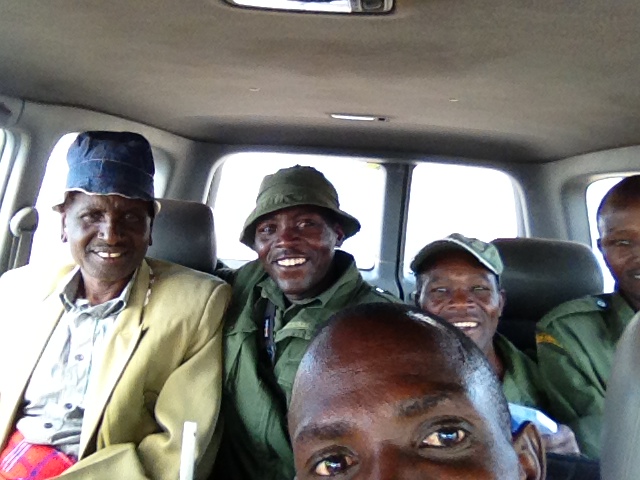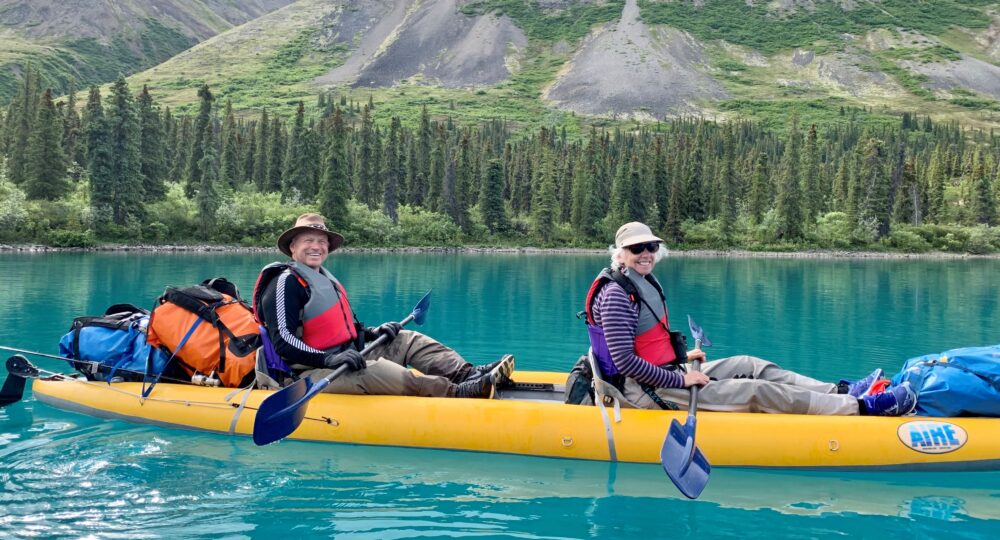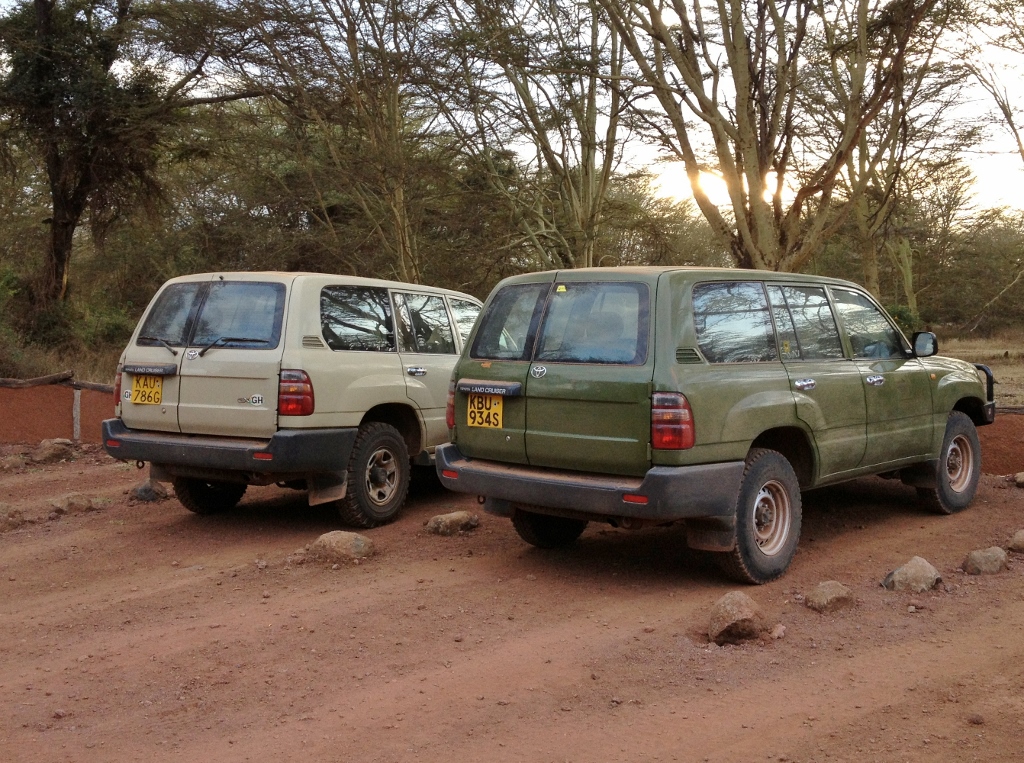What would you do if you were a white-haired woman alone in your car, driving along a deserted road and a poorly dressed male stranger jogged up to your vehicle and reached for the door handle? You’d probably do the exact same thing that I did the first time it happened to me: wave him off with a “no, no” and shake of your head and then drive on, not looking back and taking a deep breath to calm you heart. That was then. Today I wouldn’t make him jog to the car. I’d notice him on the side of the road, stop and ask if he wanted a lift.
John and I are rich in transportation; when the locals hear about our two cars, their eyes pop. Our deal with The Nature Conservancy when we signed up to work with the NRT was that we’d each have our own vehicle. How else could we function? They didn’t expect us to share, did they? As it turns out, given our remote living situation, two cars really are necessary. Most days John and I go in opposite directions and need a way to get there. That being said, we are definitely sharing our transportation.
Everywhere we go there are people walking beside the road, clustered at intersections and waiting at gates, hoping someone with a functioning vehicle will stop and take them further along their route. As each vehicle approaches, they turn expectantly, raise their palms skyward and signal “Lift?” Lewa’s main gate is a popular waiting zone. It is on the government road and across from a very good medical clinic, a community of rangers and security guards and a school. It would be rude to pass that intersection without stopping, rolling down the window and saying “Matunda Gate?” with a welcoming wave of your hand toward the back seat.
I have picked up timid mothers with silent, wide-eyed babies wrapped tightly and held close, school boys who perch on the back seat and ogle the dashboard, groups of young women who talk loudly on their cell phones the entire way, old men and women with sandals, walking sticks and very few teeth, serious men getting from point A to point B and the occasional drunk who mutters to himself and smells bad. My record was 7 riders: a mother, father and two teenaged kids, another robust woman and two businessmen. Six in the back seat, one in the front. Had I been thinking faster, we could have taken one or two more in the front.

This was the crowd I picked up on the way to work this morning: two rangers, two herders, a fence security worker and a caretaker.
One of my favorites occurred yesterday on the way to work. In the middle of a long stretch of empty grassland I came across two herds of NRT cattle. The herders were clustered, talking, next to the road. I stopped to ask where the cattle had come from (the Leparua market that John and I attended on our first visit here in June) and where they were going (to Ol Pejeta to fatten). Two of the herders needed a ride to headquarters. They climbed in the back; bright red Masai wraps, insulated long-sleeved shirts, tire-tread sandals, stocking caps, long sticks and machetes. Sometimes my passengers’ body odor can be a bit jolting. These two guys, though, smelled only of dust and wood smoke. The rest of the way to the office, I was accompanied by the Kenyan wilderness.


This is great fun, however I have been searching for photos of the honeymoon suite. Please clue us in to your living quarters.
Walked past the location of your future home and met your neighbors to the north. Cute family.
Took a weird spill on my bike today and have a massive hematomin on my leg. Playing bridge tonight. Missing you guys! Lorna
Another entry for your next book. Very good.